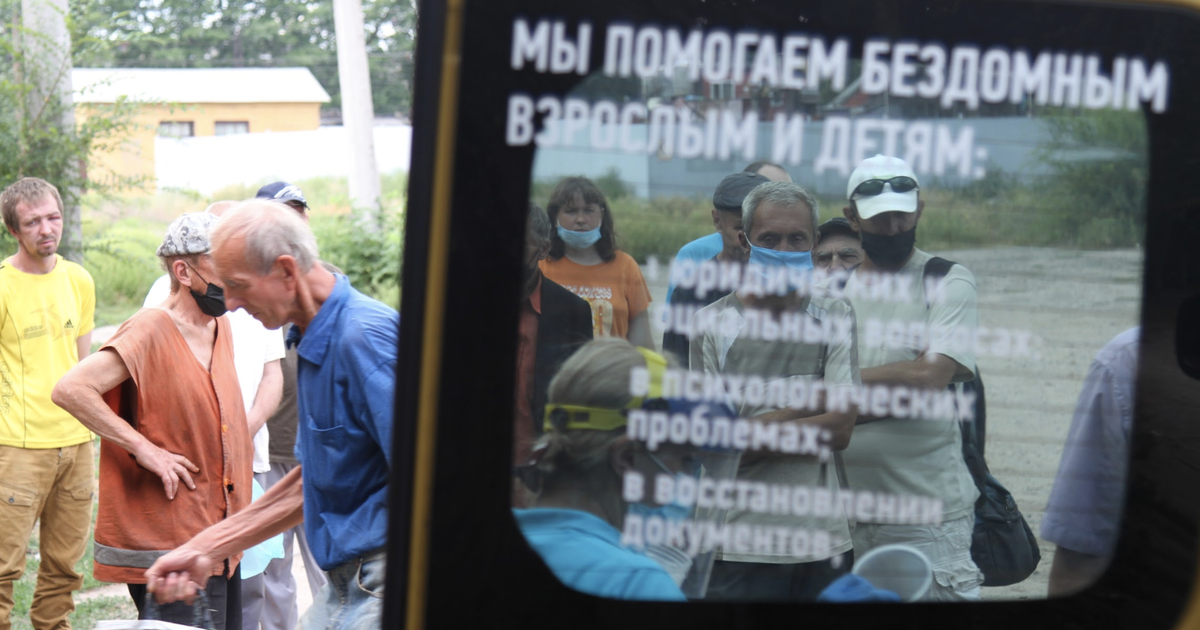How the pandemic has changed the lives of homeless people in Ukraine

Ihor doesn’t think his life has changed since lockdown – the recycling centre is as busy as ever. He doesn’t need any healthcare, and never slept in a shelter. The only thing that has changed is the mask in his pocket.
“I don’t wear a mask. I only ever wore it once when I came to see the volunteers. I put it on and got a meal. But otherwise it just lies in my pocket – just in case,” he says. “The volunteers are always saying: ‘We can smell the booze coming off you. We don’t feed drunkards. But I just drink to get some sleep – I can’t sleep otherwise.”
Alcohol or drug dependency is often the result, rather than the cause of homelessness. During lockdown, life has become even harder for homeless people with dependencies, since drug dispensaries closed down for the quarantine period. Ivan Boberskyi, head of a night shelter for homeless people in Ivano-Frankivsk, remarks on their fate: “Not a single homeless shelter will take someone with those kind of dependencies, they’re doomed.”
According to the UN Monitoring Mission, there are no night shelters in six of Ukraine’s regions: Luhansk, Kyiv, Ternopil, Vinnytsya, Zakarpattua and Zaporizhzhya. In Lutsk, in the northwest, there is a shelter, but it is only open in the winter, and the one in Mykolaiv only takes men. In four other regions – Kharkiv, Khmelnitskyi, Kirovohrad and Sumy – shelters aren’t taking any new cases because of the lockdown. Some shelters in Kyiv, Dnipro and Zaporizhzhya have taken the same measures.
“I don’t go to shelters,” Ihor tells openDemocracy. “I’ve been on the streets a long time and know them all – the old and the new – and I’ve never heard a good word [about a shelter in Kharkiv].”
Positive practices
As the UN mission notes, local authorities in some regions work with civic initiatives to help homeless people. In Cherkasy, Chernihiv, Chernivtsy, Poltava and Zhytomir, for example, social institutions are financed by local authorities, but run by social organisations. In other regions, however, volunteers provide the only help for the homeless and are funded by charities.
“In Kharkiv, we have an excellent mutual understanding with the city’s social policy department, and resolve all issues together,” says Volodymyr Balabanov, director of the Depol organisation. “We also sometimes work with local communal institutions, because public organisations and charities have considerable leeway in both the organisation of their resources and their use. But they aren’t connected financially, like local authorities.”
Balabanov mentions that in the first lockdown days, problems arose over the undefined status of volunteers – how they could work with homeless people on the street without breaking quarantine rules? The police observed the volunteers’ work and didn’t hinder them. However, he remarked that in the first few days there weren’t enough masks, antiseptic gel and food for the volunteers. Socially aware business owners were also helpful and with time organisation returned to normal.
is.gdu.nuclck.ruulvis.netshrtco.de

